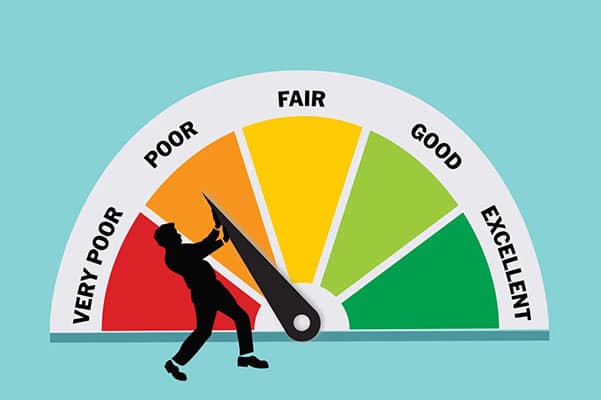Top 5 Ways to improve your credit score
A high credit score has various benefits whether applying for personal loans, car loans, or mortgages. You may be able to get better interest rates, more accommodating terms, cheaper monthly payments, and other benefits.
It may be challenging for consumers to get loans or make significant purchases if they have bad credit or no credit history. Additionally, it can result in increased interest rates for mortgages or auto loans.
FICO scores range from 600 to 800, with 800 being excellent, 740 to 799 being very good, 670 to 739 being acceptable, and 669 and below being fair to poor.
Lenders, including banks and credit unions, can know you are financially responsible if you have a favorable reputation. Despite the scary nature of credit building, there are numerous strategies to raise your credit score.
Five easy strategies to raise your credit score
-
Be aware of your credit score
All three credit reporting companies, Equifax, TransUnion, and Experian, allow you to request a free report once a year.
Additionally, a lot of credit card firms offer free credit score updates on your monthly statement, online, or via their website or app. Regularly checking your credit score should become a habit. This will aid in thwarting any fraud or identity theft.
Don’t freak over if your FICO score is lower than you anticipated. There are a lot of easy strategies to begin raising your credit score.
You can significantly raise your rating by paying your bills on time, making and sticking to a budget, using money management software, or applying for a secured credit card.
-
Create a budget and follow it
You can raise your credit score by making wiser financial decisions with the aid of a budget that you create and follow.
It’s time to take an honest inventory of your present financial obligations if your monthly rent or mortgage payment, insurance payment, grocery bill, electricity bill, credit card bill, student loan payment, and other expenses total more than your monthly income.
To do this, live within your means, only spend what you can afford, and refrain from the excessive expenditure. Keep in mind that you only need to do this while you work to raise your credit score. Here are some queries to consider:
- Add up all of your monthly spendings. Can any be gotten rid of?
- Do your monthly expenses go beyond what you make?
- Can you cut your monthly living costs, for example, by making your rent less expensive?
- Can you switch to a smaller, previously owned car?
- Can you bargain for a lower credit card or student loan interest rates?
-
Prevent paying late
It’s time to quit if you frequently pay your utility, credit card, mortgage, or student loan bills beyond the due date.
Your credit score could be negatively impacted by this. Payment history can account for up to 35% of an individual’s overall rating, which can be particularly detrimental if you have little to no credit history.
You’ll also be able to avoid undesirable late fees and penalties if you make your payments on time. Members of financial institutions like Texas Tech Credit Union can set up monthly automated withdrawals from their bank accounts.
Members can plan payments whenever it is most convenient thanks to the prevention of late payments.
A day or two after they receive their paychecks, many people set up automatic payments to be deducted from their accounts.
Members can connect to their online bank accounts at any moment to cancel or modify payments if necessary.
-
Repay any accounts that are past due
The FICO rating will increase if you make all of your past-due accounts current because a late payment can remain on your credit report for up to seven years. Additionally, it will stop your credit score from being further harmed by unfavorable marks.
A credit counselor can help you create a debt repayment plan that works for you or negotiate a lower interest rate if you have many accounts that are past due.
Your credit score can also be raised by paying off any large revolving debt on your credit cards. Maintaining a low debt-to-credit ratio signals to creditors and lenders that you are a responsible borrower. This includes credit cards and any other lines of credit.
-
Refrain from applying for too many new credit accounts
A hard inquiry is made into your credit report whenever you apply for new credit cards or loans. Even though these marks could only detract a few points from your rating, several queries can build up.
A higher interest rate on a loan or mortgage may result from often opening and canceling credit card accounts, which can be a warning sign to lenders.
Additionally, adding additional accounts decreases their average age, which harms your FICO score.
Thanks for visiting US Map Time Zones

